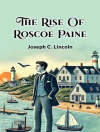In ‘The Rapids, ‘ Alan Sullivan deftly intertwines the tumultuous journey of a protagonist navigating both a physical river and the emotional currents of life. Set against the backdrop of a richly described natural landscape, the book employs a lyrical prose style that captures the vibrancy of the environment while exploring themes of identity, conflict, and resilience. The narrative flows with an almost poetic rhythm, inviting readers to immerse themselves in the protagonist’s transformative experiences amidst the rapids, which serve as both a literal and metaphorical force in his evolution. This blending of vivid imagery and introspective depth situates Sullivan within the tradition of modern literary realism, where nature is a powerful catalyst for personal discovery. Alan Sullivan, an author with a profound affinity for nature and human psychology, brings his own experiences as an avid outdoorsman to bear in this work. He has often drawn inspiration from his extensive travels and the introspection fostered by solitude in natural settings. Sullivan’s background in environmental studies and literature informs his nuanced portrayal of the interconnectedness of human experiences and the natural world, making ‘The Rapids’ a compelling read. Readers seeking an engaging narrative that explores the complexities of the human spirit against a backdrop of breathtaking nature will find ‘The Rapids’ an enriching experience. Sullivan’s skillful storytelling resonates deeply, prompting reflections on one’s own life journey. This book is a must-read for those who appreciate literature that delves into the essence of existence through the lens of nature’s raw beauty.
Sobre o autor
Alan Sullivan was a Canadian poet, author, and engineer whose contribution to literature remains noteworthy in the realm of early 20th-century Canadian fiction. Born in 1868, Sullivan led a multifaceted life which imbued his literary works with a rich tapestry of experiences. His professional background as an engineer was often reflected in the meticulous detail and structural complexity of his narratives. ‘The Rapids, ‘ a prime example of his storytelling prowess, delves into the lives of those impacted by the industrial age and the transformative power of human ambition and natural forces. Sullivan’s narrative style is marked by a blend of romanticism and realism, capturing the spirit of pioneer life and the Canadian wilderness with vivid imagery and emotional depth. While not as widely recognized internationally, Sullivan’s work is considered an integral part of the Canadian literary canon, and ‘The Rapids’ holds a special place in the chronicles of heritage Canadian literature. His stories often explore the dichotomy between man and nature, progress and tradition, serving as a literary mirror to the rapidly changing world of his time. Sullivan passed away in 1947, but his body of work continues to inspire and inform readers and scholars interested in early Canadian literary artistry and the socio-economic transformations of the early 1900s.












